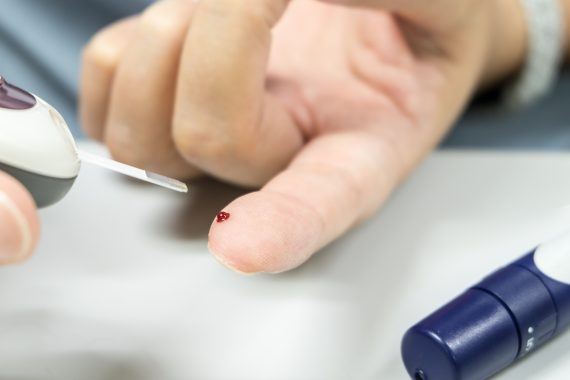An app that allows patients with type 2 diabetes to log and change their lifestyle habits is to be funded through an NHS bursary programme so it can be used more widely across the health service.
The Low Carb Program app has been accepted onto the NHS innovation accelerator (NIA) scheme, which will provide its developers with a bursary, learning programme, peer-to-peer support and mentoring from experts.
The app, set up in 2015 by Diabetes Digital Media, offers recipes and meal plans, and allows patients to track their progress and set targets to help reduce their blood glucose and cholesterol levels.
The NIA scheme, run by NHS England and the Academic Health Science Networks (AHSN), was first set up in 2015 to help drive forward the NHS Five Year Forward View.
Co-founder of Diabetes Digital Media Arjun Panesar said the aim of the Low Carb Program app is to ensure more people with diabetes 2 move into remission.
He said: ‘When we started, diabetes was considered to be a chronic and progressive disease and now we’re really proud to say that today, it is not considered to be chronic and progressive.
He added: ‘Now we’re in the innovation accelerator, its fantastic. The kind of opportunities and challenges we face are really quite abstract, such as the system integration. The bursary allows us to find the roots to, and finance, integration with EMIS, SystmOne etc.’
Each application to join the accelerator is reviewed by 100 clinicians, patients and commercial experts from organisations including NHS England, NICE and the AHSN.
This year the scheme includes 12 other apps, covering mental health, early diagnosis of skin cancer and allowing direct digital access to healthcare professionals.
Earlier this year, the Low Carb Program app was also accepted onto the NHS Apps Library, which sets standards for the technology so patients know it is safe to use.
Mr Panesar said he hopes this will lead to the app being prescribed on the NHS in the future.
He said: ‘It gives us the appropriate avenues in order to make the prescription of the app, although that’s not taken place yet – we’re hoping this year.
‘When you are to refer a patient to it, it can be done with one click. If you’re sitting with your GP, then you just have a button and can go straight into the platform. That’s one of the key interests for us, not only for primary care, but also for patients.’
A one-year study looking at how patients used the app found more than a quarter (26.2%) of the 743 participants starting with HbA1c above the 6.5% threshold for type 2 diabetes reduced their HbA1c to below the threshold while not taking any glucose-lowering medication.
Last year, the RCGP offered an online training course for GPs on low carb diets for type 2 diabetes patients.
Pulse July survey
Take our July 2025 survey to potentially win £1.000 worth of tokens





 Oviva’s fully remote Tier 3 Weight Management programme
Oviva’s fully remote Tier 3 Weight Management programme






